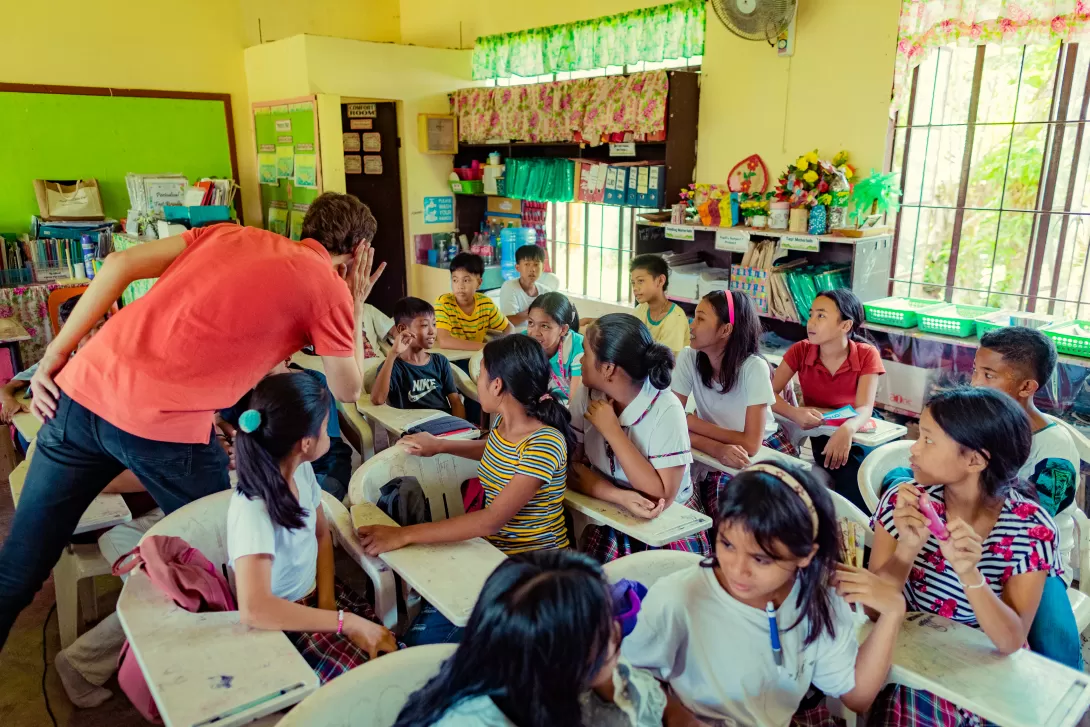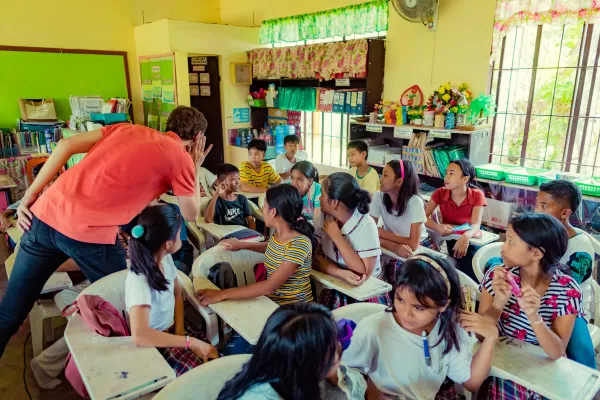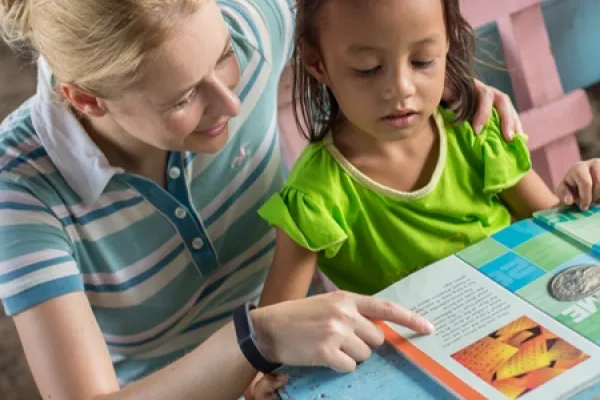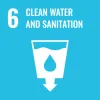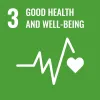Overview
Education is one of the most effective ways to support the under served communities of the Philippines which are poverty stricken. As a volunteer in the Teaching Program in the Philippines, volunteers will get to assist local teachers in developing students’ reading, writing and speaking skills in English. Additional classes are also facilitated for Mathematics and Science. Placements are also offered in Special Education (SPED) schools to assist teachers in mentoring students with physical and mental challenges. Special schools that coach and mentor deaf, mute, and autistic children also need enthusiastic volunteers. A fulfilling and impactful way to help rural communities, volunteering for Filipinos will certainly be a learning experience for all.
The Teaching Project was initiated in response to the call of public schools for foreign volunteers who can render service. The schools believe that foreign volunteers have a positive impact on the pupils,serving as role models and inspiration. They also help the children improve their English language skill.The project may take you out of your comfort zone as it will require you to actively deliver lessons every day in front of many children. The first week is important. It will allow you to know your pupils and see how you can better cater to their needs. We encourage you to take the initiative and be proactive, that way the school will know that you are ready to take on tasks that you are capable of performing. You will observe how things are done and can ask questions about things that you don't fully understand. The classroom teacher is readily available to support you throughout your program.
Sample Placement Profile : Tugop Elementary School
Tugop Elementary School is located in the rural village of Barangay Tugop in the municipality of Tanauan, Leyte. The school can be reached via jeepney and motorcycle. Travel time is between 45-60 minutes depending on the pace of the vehicles. This is a public school under the supervision of the Department of Education. It is in place to serve the community of Tugop.
The school staff is composed of the head teacher and grade school teachers including the kindergarten teacher, with a total of 207 pupils. For concerns while on the project, it is recommended that the volunteer speak with any of the teachers, in particular the homeroom teacher of the class he/she is handling.
The local program coordinators opened the teaching project to provide support to the school. There is only one teacher per class handling several subjects in a day. Class population varies but usually between 25-35 in rural areas. The subjects the teacher handles include Math, Science, English, Physical Education, History, Music. Class is open from Monday to Friday except during holidays and school activities. Class starts at around 8AM, pauses for a break at 12 noon and resumes at 1PM to close at 4PM.
As a placement, the school benefits from having an extra teacher who can help in teaching English, Math, Science, or Music depending on the preference of the volunteer. Having a foreign volunteer who speaks English is useful as it gives the children the chance to learn and practise the language. In the Philippines, a good grasp of the English language is an advantage in employment. At the same time, the volunteer serves as a role model and inspires these children to study for a better future.
Volunteer Work Schedule
Volunteer Work Schedule
A typical volunteer schedule under this program is as follows;
Saturday/Sunday - Arrival and transfer to host family accommodation
Monday - Orientation. An orientation session will be conducted by the local coordinator, covering topic areas; such as safety, culture, language, places to visit, behaviour, food, and other suggestions over things to do in the Philippines
Monday to Friday - Volunteer Work
Breakfast - 6:00 am
Volunteer work - 08:00 am to 12:00 pm and 01:30 pm to 04:00 pm
Lunch - 12:00 pm to 01:00 pm (volunteers need to arrange lunch at their own cost. Participants usually choose to eat at a restaurant or take packed food.
Dinner - 06:00 pm onwards
Weekends - Free to explore the city
The same volunteer work schedule continues from the second week onwards.
Note: Please note, the schedule may vary depending on the particular project the volunteer is participating on.
Volunteer Roles & Responsibilities
Volunteer Roles & Responsibilities
Given the poor condition of the rural elementary schools, volunteers will be providing valuable and important support to teachers. Volunteer duties in the program depend on the participants experience and skill level. Some of the major roles and responsibilities of the volunteers in the Teaching program include :
Teach any of the following preferred subjects: English, Maths, Science, Geography, Arts, Computer
Literacy, Music, Dance, Programming, Carpentry, Sports etc.
Conduct classes on your own or assist teachers
Teaching special education classes
Making the teacher student sessions more interactive, engaging and challenging
May conduct after- school tutorials
Project Requirement
Project Requirement
Volunteers must be 17 years or older at the time of joining the project. You need to have an open mind and a flexible attitude for working in a new and different environment. The volunteer should bring energy and enthusiasm to make a difference and have a passion for working with children. Participants must be fit and healthy at the time of joining the program. Participants should have no criminal convictions and should provide a clean criminal background check report. A parental consent form shall be required for Under 18 participants joining the program. Any student or professional with a passion to teach young minds, who loves working with children and teenagers, including children with special needs are eligible to join the project.
Schedule a Google Meet with a Program Advisor
Interested in our programs? We're here to provide expert guidance
- Get Detailed Info
- 20 min One -on-One meeting
- Get expert advise
- Application Guidance
Photo Gallery
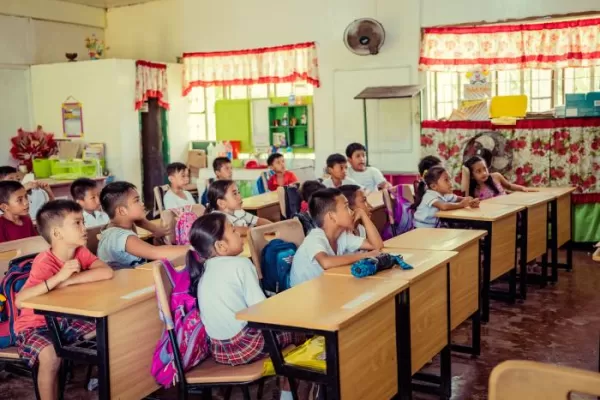
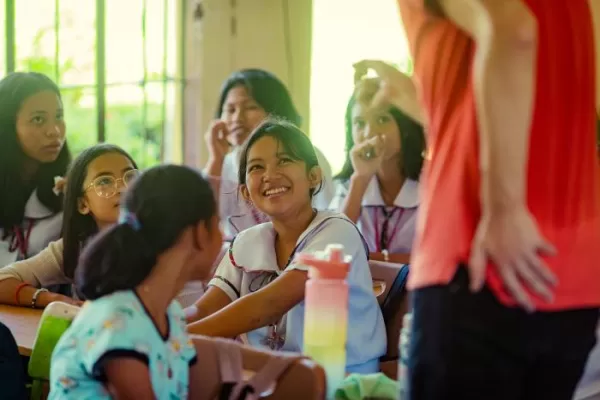
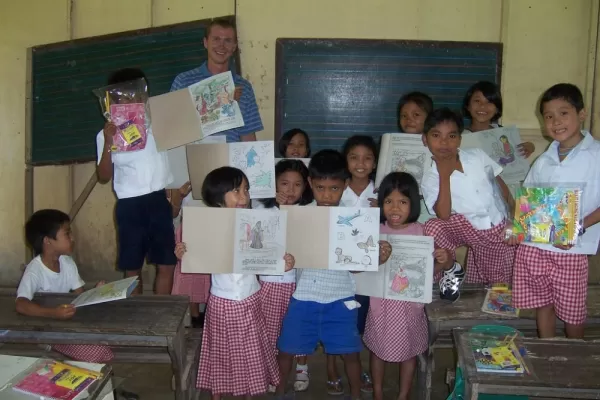
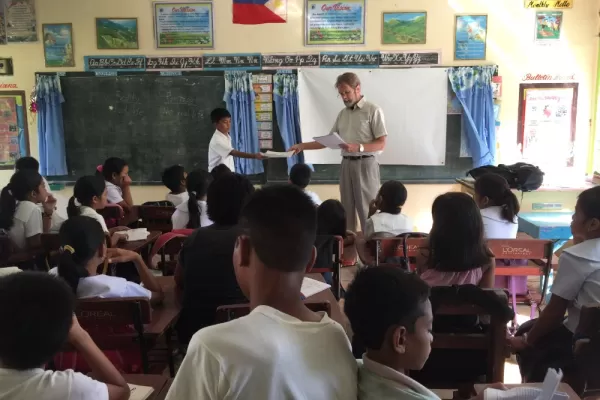
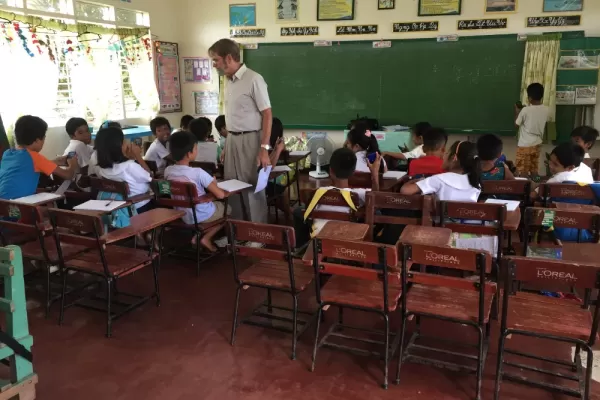
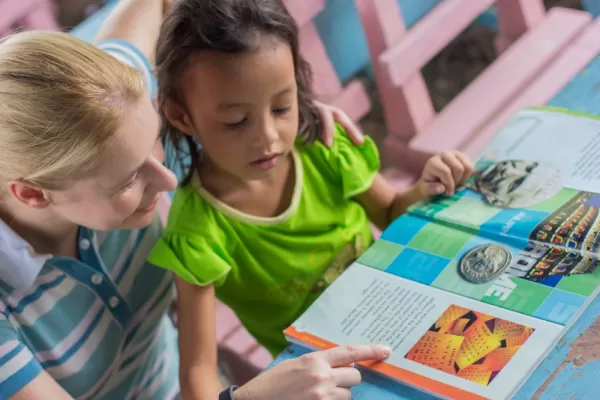
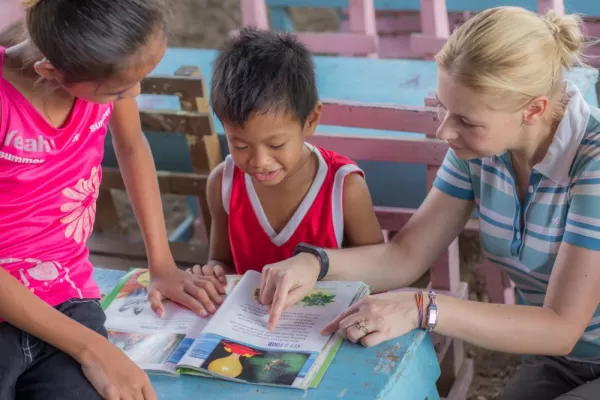
Living
Living
Airport Transfer
Volunteers are picked up from and dropped off at Tacloban Airport by a local representative staff member. Volunteers can arrive on Saturday or Sunday before starting their orientation on Monday.
Orientation
Orientation takes place on the Monday and includes comprehensive coverage of a number of relevant topics. It is given by a qualified staff member of the local team. Orientation includes the following activities:
Introduction to the program, its history, structure, and organisation
Introduction to the Philippines and the Filipino Culture
What to expect from the Volunteer Program
Health and Safety Briefing
Behavior Policy Briefing
Introduction to the actual placement, with special attention to transportation
Introduction to the placement staff and volunteers
Accommodation
Volunteers will live with homestay families residing in the Tacloban area. The homestays have been thoroughly evaluated before they were accepted into our homestay program. are experienced in accommodating international volunteers. Prior to your arrival, you will receive a profile outlining the specifics of your homestay family.
Your homestay will welcome you into their home and treat you as a member of the family. By living with them, you will be able to experience Filipino culture and participate in their daily activities. You will eat the same food they are eating, though your homestay family knows what foreigners like to eat. If you have special dietary requirements, it is best to inform us beforehand so we can meet your needs. You will be served only two meals per day, breakfast and dinner. Your homestay will also provide you with filtered drinking water, as it is best not to drink tap water. All the homestays have electricity and running water. You will have a private room by yourself or shared with a fellow volunteer. You also are provided a mosquito net and electric fan. The bathroom or toilet, commonly called “comfort room or CR” will be shared with all the family members.
Bathroom accommodation is basic and the volunteer will take cold, bucket baths because hot running showers are uncommon in Filipino homes – don't worry too much about this as cold bucket baths are often refreshing after being in the tropical heat all day. Finally, volunteers will also have to get used to the sound of roosters crowing even before the break of dawn.
Meals
During your time as a volunteer, you will be provided with two meals a day (breakfast and dinner) by your homestay. Aside from this, access to safe drinking water will also be provided by your homestay. All meals will be served with rice and typically include fish, chicken or pork. Homestays can cater for special dietary restrictions, however, we require that you include this in the application form.
During your Free Time
The local coordinating team in the Philippines arranges for the volunteers to go on two excursions. On one of the trips, volunteers visit the local areas of interest such as San Juanico Bridge, the Santo Nino Shrine and the MacArthur Landing Memorial Park. Volunteers will get an opportunity to experience the natural beauty of the tropical island of Leyte.

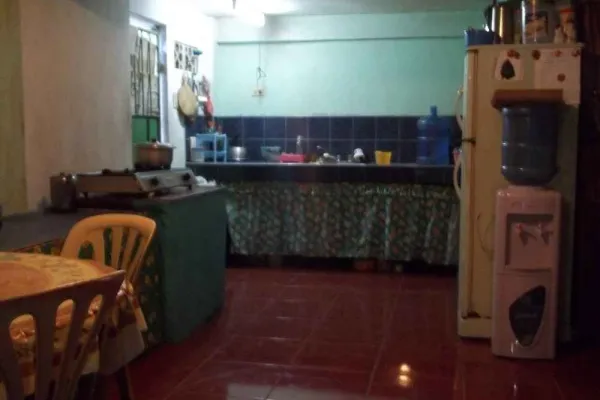
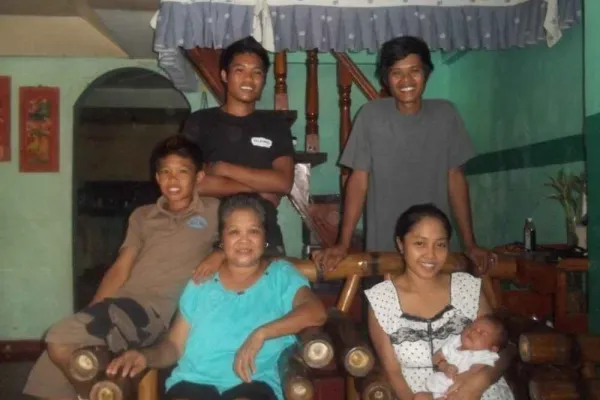
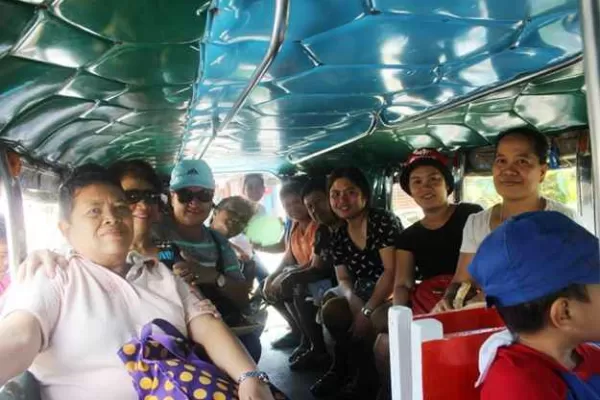
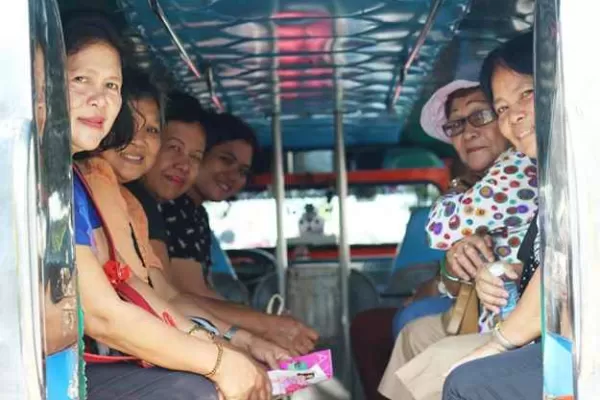
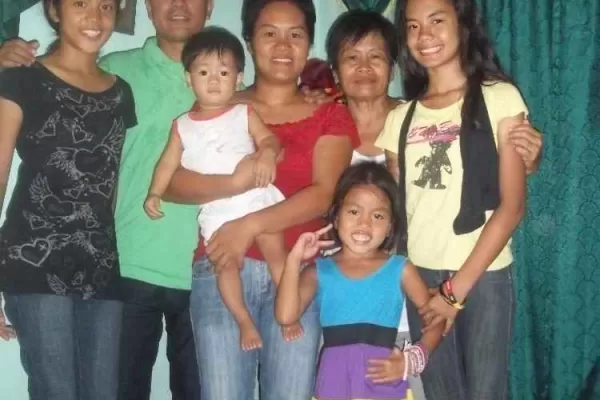
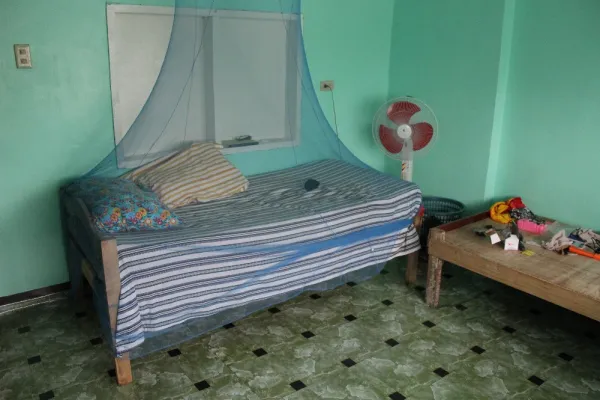
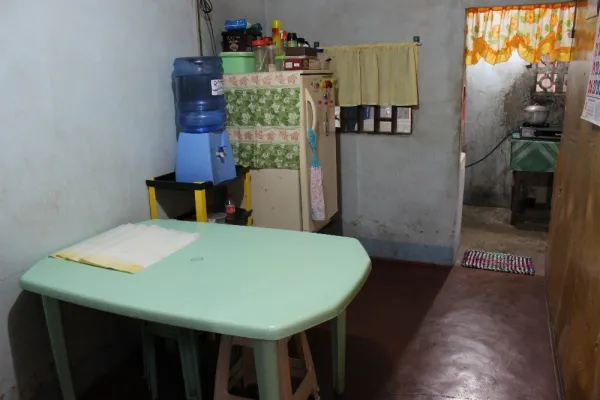
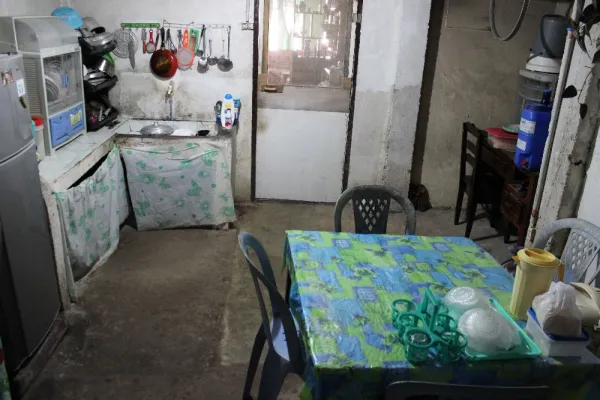
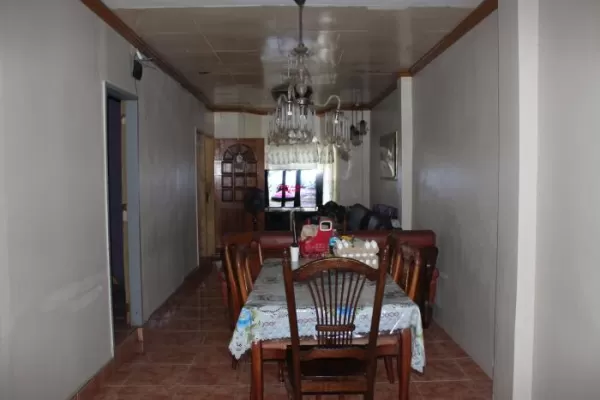
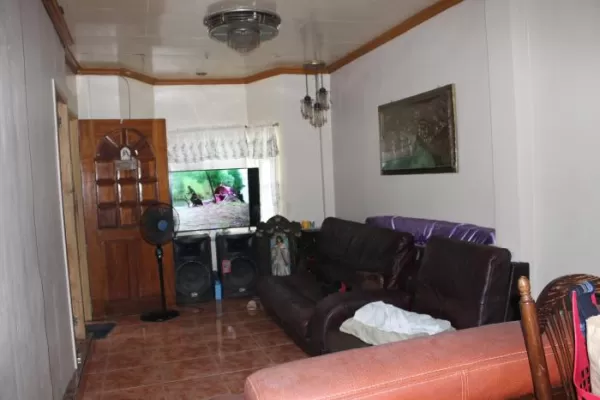
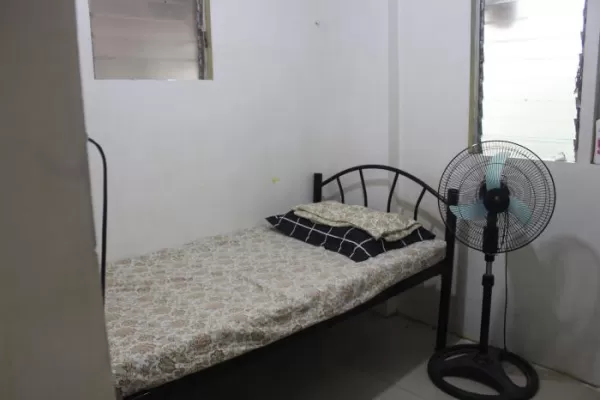
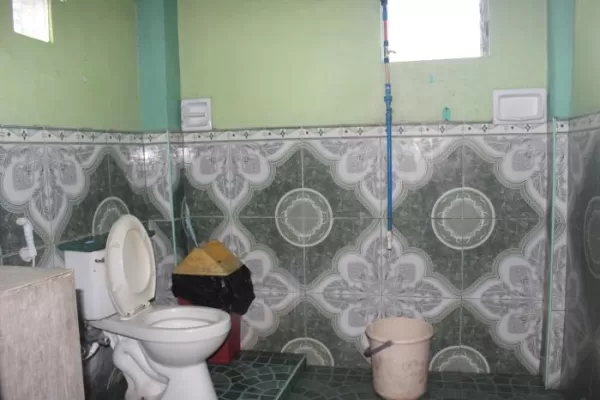
Dates
Dates
January
05
12
19
26
February
02
09
16
23
March
02
09
16
23
30
April
06
13
20
27
August
31
September
07
14
21
28
October
05
12
19
26
November
02
09
16
23
30
January
04
11
18
25
February
01
08
15
22
March
01
08
15
22
29
April
05
12
19
26
August
30
September
06
13
20
27
October
04
11
18
25
November
01
08
15
22
29
Available
Filling Fast
Booked Out
Costs
| Duration |
Program Fee
|
Choose your currency
|
|---|---|---|
| 2 Weeks | $890 | |
| 3 Weeks | $1040 | |
| 4 Weeks | $1190 | |
| 5 Weeks | $1340 | |
| 6 Weeks | $1490 | |
| 7 Weeks | $1640 | |
| 8 Weeks | $1790 | |
| Extra Week | $200 |
Please Note: An application fee of is charged over and above the program fee as an application payment. A 5% international banking fee is charged for credit card payments of program fee in USD/AUD.
What are you Paying For?
- Airport Pickup and Drop Off
- Welcome Orientation – Program Orientation
City Tour & Placement Orientation - Accommodation in a Filipino Host Family
- 2 Meals a Day
- Detailed Pre Departure Info Pack
- Project Placement
- 24 hrs Assistance and support from in country staff
- Travel and Medical Insurance (Available at an extra cost)
- Certificate of Participation(On Request)
What's NOT Included?
- Visa
- Vaccinations
- Flights
- Local Transportation
- Personal Expenses
FAQ's
Application and Program Details
-
What are the program locations in Philippines?
-
The projects are based in Tacloban City on the island of Leyte in Eastern Visayas. Tacloban is approximately 360 miles southwest of Manila and is well-known as the site of U.S. General Douglas MacArthur’s Leyte Gulf Landing, which marked the start of a fierce campaign to regain the Philippines from Japan during World War II.
-
Can I volunteer as part of a group?
-
Yes, you are welcome to take part in Tacloban Volunteer Program as part of a group. We welcome families, friends, high school students, college/university and corporate groups to volunteer together in the Philippines program. We can provide customized group volunteering opportunities depending on the group’s requirements and suitability.
-
Can I know more about Tacloban?
-
Tacloban also is the site of the prestigious San Juanico Bridge, which is the longest bridge in the Philippines. This bridge connects the islands of Leyte and Samar and is a key link in the Pan-Philippines Highway, which connects the Philippines islands of Luzon, Samar, Leyte and Mindanao through a network of roadway, bridges, and ferries.
Tacloban is the capital of Leyte Province and has a population of about 240,000. It is not a popular tourist destination and does not attract many foreign visitors. For this reason, Tacloban offers our international volunteers an opportunity to be immersed in a unique Asian culture. -
When do I need to arrive in Tacloban for my program? What will happen once I arrive in the city?
-
All volunteers need to arrive in Tacloban on the starting date of the program. Volunteers are picked up by the local coordinator or representative from Tacloban airport and are taken to the host family accommodation. Once you come out of the airplane, you will be directed to enter the airport terminal through the back of the building, as the airport is not fully repaired from the damages sustained during the typhoon in November 2013; though it is getting better. At the exit area, the local staff representative will be waiting for your arrival with a sign board. After receiving, you will be taken to the community where most homestays and the main local office are located. The ride is about 10 to 15 minutes long.
-
How long will it take to process my application? Will my application be accepted?
-
Usually, it takes around 10-12 working days for the application to be processed and placement to be confirmed. After the application is accepted, your placement document shall be updated in your account online and you can view the information in your account. The application acceptance depends on the availability of seats in the project as well as the eligibility criteria of the program (age, skills and experience etc.).
-
For how many hours will I volunteer every day?
-
Volunteers usually work for 5 to 6 hours a day depending on their program. You will have the weekend off so you can go to travel on weekends. However, volunteers need to be flexible, open minded and understand that work requirements can change as well on certain occasions.
-
When should I apply for the volunteer programs in Philippines?
-
For programs in the Philippines, it is advised to apply as soon as possible after you have decided on your choice of program and the desired dates. Every program has limited number of spots available and due to this reason, volunteers are requested to book their spot as soon as the dates are decided. We abide by the first come first serve policy.
-
Are there any necessary requirements to participate in the Philippines -Tacloban City volunteer programs?
-
Below are the necessary requirements to participate in the Philippines volunteer projects:
Volunteers must be 18 years or older at the time of joining the project.
Volunteers need to have an open mind and flexible attitude for working in a new and different environment. The volunteers should bring energy and enthusiasm to make a difference.
Participants must be in good health.
Participants need to provide a copy of their Resume/CV as well as Criminal Background Check Report for those participants working in projects with children.
Health and Safety
-
How safe is the Philippines and Tacloban City in general?
-
Tacloban City is a tourist friendly city and Philippines is a largely safe country. The Volunteers are, however, advised to travel in groups, not venture alone at nights and take the basic safety precautions. All volunteers must consult the coordinators before planning a night out and take the necessary safety tips, too. Leyte Island is generally safe for travelers. As with any other country, tourists and visitors must always take precautions when traveling abroad.
-
What immunizations/vaccinations will I need?
-
We recommend you to consult your physician or travel doctor before traveling to the Philippines. However, we recommend you take general vaccinations like
1. Hepatitis A and B
2. Typhoid
3. Malaria tablets
Yellow Fever vaccination is required for travelers who are arriving from, or have transited through, countries with risk of yellow fever transmission. -
Do I need to buy health insurance?
-
Yes, for all participants it is mandatory to have a travel medical insurance. Volunteers have the option to purchase Travel and Medical Insurance at a nominal extra cost from Volunteering Solutions. To provide the best option to our participants, we offer comprehensive insurance coverage in collaboration with a leading insurance provider.
Accommodation and Living
-
Would I have free time during my program ? Can I do sightseeing during my program ?
-
Volunteers do get weekends free for doing sightseeing and socializing with other volunteers in the program. Tacloban City has amenities for almost every kind of traveler, from the Robinsons Shopping Mall to beautiful sun-swept beaches on the outskirts of the City. What you get up to during your time off is completely up to you, however, our staff can provide you with help in planning your trip.
Volunteers also enjoy relaxing at the many beach resorts, most predominantly the Tadjaw beach resort near the municipality of Tolosa. For those of you that are looking further afield for more exciting opportunities, you can plan a weekend getaway to Cebu, or to visit the Chocolate Hills on Bohol or the Sohoton Caves on Samar. -
Will I have access to clean drinking water?
-
All homestay families will provide clean drinking water for their volunteers. Mineral water is also widely available in small shops throughout the neighborhood as well as at larger grocery stores. When being served water at restaurants it is always important to ask if the water is mineral water and if the ice is made from tap water.
-
Are there more expenses once I arrive in Tacloban City?
-
Your program fee does not cover your personal expenses. You will need to cover yourself for your personal expenses, such as local transport, telephone, the internet, shopping, sightseeing etc. However, you should carry around $50-$70 per week for your basic personal expenses. This amount can vary and you would need a higher amount if you go on different weekend trips out of town.
-
What all are included in the fee I pay?
-
You Program Fee includes your Pre-Departure booklet, airport pick-up once you arrive in the Philippines, orientation about the project and a city tour on the first day. It also includes your accommodation on same gender sharing basis as well as meals as mentioned in the program schedule.
We can arrange for airport drop at an extra cost. -
How do I get to the program location?
-
Your project coordinator will take you to your placement and introduce you to everyone after giving you a basic orientation about the program/city/culture etc.
Before starting your project, you will be given an extensive orientation that will include how to get to, and back from, your project; how to get to, and back from the downtown - the location of ATMs, restaurants, souvenir stores, and where money changers are, as well as a brief introduction to Filipino culture and etiquette.
The 'Jeepney', a colorful bus made from former U.S. Service vehicles is the most common form of transportation in the Philippines and covers short to medium sized journeys. This is the most common mode of transport for the volunteers in Tacloban.
For longer journeys, there are conventional buses, whilst motorcycles, tricycles, and private hire taxis, called 'Spider Cabs', can also be used for midrange journeys. If you're looking to just go down the road, you can ride a pedicab, a converted bicycle with attached sidecart. -
Can I know more about accommodation and food arrangements?
-
Volunteering Solutions arranges accommodation for volunteers with a local Filipino host family in the local community. Staying with a local family is exciting and a part of the cultural experience and immersion as you get to know about their way of life, customs and traditions.
These are screened, well respective members of the local community who have been accommodating volunteers for many years. You will be given either a private or shared bedroom in which you will have a secure luggage storage (bring your own padlock), mosquito neck and electric fan. You will also have access to safe drinking water.
We ask volunteers to be considerate regarding their electricity consumption.
Volunteers will be provided with two meals a day (breakfast and dinner), these meals will vary but will usually be traditional Filipino meals, be prepared to eat a lot of rice! -
Will I have access to the internet?
-
The local partner office currently has internet access and wifi capabilities, but volunteers should be mindful of their internet use since the staff members are also sharing the internet connections for general business operations. Volunteers can also visit a handful of coffee shops in downtown Tacloban (our volunteer coordinator will show you how to get to and from downtown during your city tour), which is a 15-25 minute ride from your homestay, that have wifi connection, as well as small internet cafes where you can pay per hour for computer/internet use.
Flights and Visa
-
Do I need a Visa to travel to Philippines?
-
Citizens of most countries can enter the Philippines and get a Visa on arrival at the airport for a period of 30 days. Your passport should be valid for a minimum period of 6 months from the date of entry into the Philippines. Visas can also be extended while you are in the Philippines. Volunteers participating in the long-term programs can apply for Visa beforehand at the nearest Philippines embassy.
-
What are the recommended airlines to fly to Tacloban, Philippines?
-
You will need to arrive in Manila and from there take a connecting flight to Tacloban City. Manila is well connected with direct flights from major international locations. The Daniel Z Romualdez Airport (Airport Code: TAC) in Tacloban is the main gateway from Manila and Cebu to the Visayas Region. AirAsia Zest, Pal Express, Philippine Airlines, and Cebu Airlines have flights from Manila to Tacloban.
Connect with Past Volunteers
-
How can I connect with past Volunteering Solutions alumni as well as other former and current volunteers ?
-
We encourage volunteers to get in touch with former Volunteering Solutions participants and also other program participants joining our projects. You are recommended to join thehttps://www.facebook.com/VolunteeringSolutions/">; Volunteering Solutions Facebook Page or Facebook">https://www.facebook.com/groups/VolunteeringSolutions/">Facebook Group to communicate with other participants.
To read alumni interviews from past participants, visit the Meet">https://www.volunteeringsolutions.com/meet-a-volunteer">Meet a Volunteer section on our website.


























